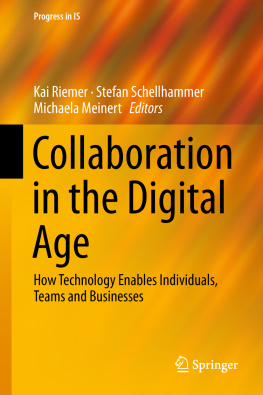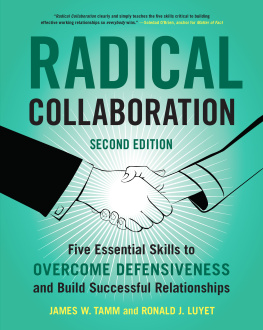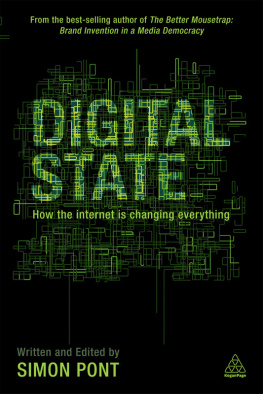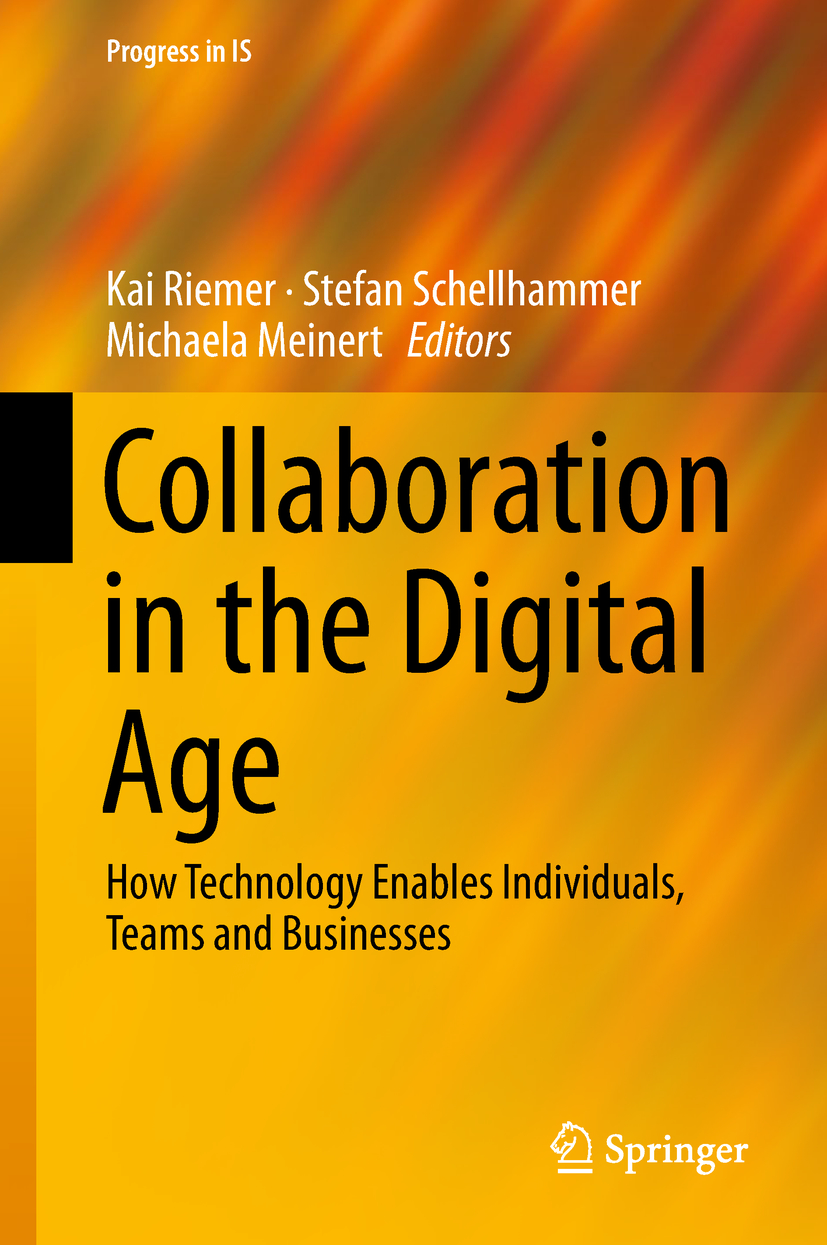Editors
Kai Riemer
Business Information Systems, University of Sydney, Sydney, NSW, Australia
Stefan Schellhammer
Department of Information Systems, University of Mnster, Mnster, Germany
Michaela Meinert
Department of Information Systems, University of Mnster, Mnster, Germany
ISSN 2196-8705 e-ISSN 2196-8713
Progress in IS
ISBN 978-3-319-94486-9 e-ISBN 978-3-319-94487-6
https://doi.org/10.1007/978-3-319-94487-6
Library of Congress Control Number: 2018946675
Springer International Publishing AG, part of Springer Nature 2019
This work is subject to copyright. All rights are reserved by the Publisher, whether the whole or part of the material is concerned, specifically the rights of translation, reprinting, reuse of illustrations, recitation, broadcasting, reproduction on microfilms or in any other physical way, and transmission or information storage and retrieval, electronic adaptation, computer software, or by similar or dissimilar methodology now known or hereafter developed.
The use of general descriptive names, registered names, trademarks, service marks, etc. in this publication does not imply, even in the absence of a specific statement, that such names are exempt from the relevant protective laws and regulations and therefore free for general use.
The publisher, the authors and the editors are safe to assume that the advice and information in this book are believed to be true and accurate at the date of publication. Neither the publisher nor the authors or the editors give a warranty, express or implied, with respect to the material contained herein or for any errors or omissions that may have been made. The publisher remains neutral with regard to jurisdictional claims in published maps and institutional affiliations.
This Springer imprint is published by the registered company Springer International Publishing AG part of Springer Nature
The registered company address is: Gewerbestrasse 11, 6330 Cham, Switzerland
Preface
The proliferation of digital technologies has brought the world closer together but also created new barriers and divides. It is now possible to connect almost instantly and seamlessly with family, friends and co-workers across the globe. As a result, new forms of collaboration between individuals, teams and businesses have not only become possible, but a necessity to stay competitive in fast-changing markets.
At the same time, the emerging Digital Age brings with it new requirements and challenges for all involved:
Individuals have to learn new skills for collaborating at a distance and find themselves in rapidly changing work environments;
Teams need to develop new practices and engage in much, often hidden, collaboration work to enable effective work across boundaries;
Executives and managers face the challenge of having to lead teams and people that are dispersed across space and time zones;
Organisations see new opportunities for transforming work using digital and social collaboration tools, but face new and unique challenges of introducing and adopting such social technologies;
Businesses are able to access resources in new collaborative inter-organisational networks, at the expense of new managerial complexity of engaging in multi-stakeholder arrangements;
New markets proliferate with the advent of digital commerce, yet engaging with consumers in multiple channels requires new capabilities that challenge many traditional retailers.
This book brings together expert scholars to address these challenges. Across 14 chapters, our authors share their insights into new forms of work, team collaboration, enterprise social networking, management in a digital world, digital commerce, as well as various new inter-organisational forms of doing business such as in digital cooperatives, large project businesses and living labs.
We are confident that professionals and academics alike will regard this book a valuable resource for understanding the diverse power of collaboration in the Digital Age. The book is organised into three main parts that represent different levels at which such phenomena play out:
- (1)
The first part engages with collaboration between people and in teams, on a work practice level . It contains chapters that investigate co-working spaces, enterprise collaboration systems, virtual teams and management practices for the Digital Age.
- (2)
The second part widens the gaze and covers matters of inter-organisational collaboration in business networks , supply chains or entire industries. Chapters in this section introduce new forms of citizen cooperation in the health sector, the sharing economy, cooperation in large projects, supply chain innovation and living infrastructures.
- (3)
The third part covers digital commerce , new forms of digital interactions between businesses and their customers, with a focus on online search and digital technology adoption among traditional high street retailers.
Festschrift for Stefan Klein
This book is a Festschrift in honour of Stefan Klein, on the occasion of his 60th birthday.
Stefan Klein is Professor for Interorganizational Systems and a Director of the European Research Center for Informations Systems (ERCIS) at the Department of Information Systems, University of Mnster. Stefan received his Ph.D. from the University of Cologne, Germany and his Habilitation from the University of St. Gallen in Switzerland. He also held positions with the German National Research Center for Computer Science (GMD); Harvard University; University of Koblenz-Landau, Germany; University of Linz, Austria; and University College Dublin, Ireland, where he was John Sharkey Chair in The Centre for Innovation, Technology & Organisation. Stefan has published widely in the discipline of Information Systems and held editorial positions with many of the top journals in the field.
Importantly, Stefan has been a positive role model for many colleagues, junior and senior alike, ourselves included. Many of those colleagues have keenly accepted our invitation, and taken time out of their busy schedules to contribute their latest work and insights to this book. As a result, this book is as much a reflection of the quality of Stefans network of collaborators, as it is of his own research interests and his approach to academic work and life more generally. If asked to describe Stefan with one word, many colleagues would provide as an answer collaboration (or various derivatives thereof). This term describes at once Stefans research interests, and his fundamentally open and cooperative attitude towards others.
The theme of the book Collaboration in the Digital Age captures, in todays language, Stefans long-standing research agenda which revolves around the impact of emerging new technologies, such as information infrastructures, inter-organisational systems, digital devices and communication technologies, on social phenomena of collaboration among businesses, teams, workers or even consumers. More specifically, the three parts of this book are a direct reflection of the three major research streams that characterise Stefans academic career to date. He has made important contributions to each.








